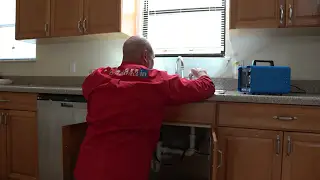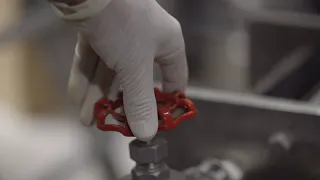In this post, you’ll learn why quality plumbing services often come with a premium price, what truly goes into the cost of running a reputable plumbing business, and how to protect yourself from those rare companies that do try to overcharge or provide subpar work. By the end, you’ll have a clearer picture of how plumbing prices are set—and how to find a reliable plumber who delivers great value.
The Real Costs of Running a Plumbing Business
Running a professional plumbing operation isn’t just about a plumber showing up at your door with a wrench. The company must juggle:
- Customer Service Staff: Someone needs to answer the phone, schedule appointments, handle emergencies, and maintain communication when issues arise.
- Dispatchers: In many shops, a separate person ensures the right plumber (or team) is matched with the right job. This role is crucial in optimizing routes and avoiding wasted hours.
- Skilled Technicians: A good plumber (potentially with an apprentice) must be licensed, background-checked, drug-tested (in many reputable companies), and continually trained in new technologies.
- Vehicle Maintenance: Service trucks and vans don’t just run on fuel. They also carry an arsenal of parts, tools, and specialty equipment—making them more like a “warehouse on wheels.”
- Insurance, Licenses, and Permits: Professional plumbers have overhead costs tied to liability insurance, workers’ compensation, and staying current on all required licensing.
- HR and Administrative Costs: HR duties, billing, invoicing, and other back-office tasks add to the plumbing company’s bottom line.
When you pay for a service call, you’re not only paying for the few hours a plumber spends at your home—you’re also covering the infrastructure that allows that plumber to show up promptly, fully equipped, and prepared to solve your problem.
Charging a Service Fee vs. Free Estimates
Many reputable plumbing companies charge a service call fee. This fee covers the cost of sending a licensed, trained professional to diagnose your problem. While “free estimate” plumbers do exist, they tend to be the cheapest in town—often with good reason. They may be less experienced, less organized, or less reliable. By contrast, a service fee usually indicates a company that values the plumber’s time and skill, and ensures you get someone well-qualified to do the work.
Specialty Training and Equipment: Why Some Jobs Cost More
Some plumbing issues—such as slab leaks, gas line repairs, and advanced leak detection—require specialized knowledge and gear. Equipment like electronic leak detectors, thermal imaging devices, and high-grade cameras isn’t cheap. Furthermore, the plumber must undergo specific training to use these tools correctly. This specialized level of service typically commands a premium price, because:
- It requires advanced certifications or endorsements.
- It demands extra insurance or risk coverage.
- It involves ongoing training to keep up with new diagnostic methods.
However, this premium can be well worth it if it means your plumber can accurately locate and fix a leak without tearing up your floors or walls unnecessarily. Paying a bit more for specialized service often saves you from far greater damage and repair costs down the line.
Drain Cleaning and Sewer Clearing: Are You Getting Your Money’s Worth?
Drain or sewer clogs may seem like straightforward tasks—just run a snake and clear the blockage. Yet, even “simple” clogs can hide more complex issues. If a drain is constantly backing up, there might be roots infiltrating the line or a cracked pipe. A good plumber will:
- Use the Right Equipment: From motorized drain snakes to hydro jetters, the gear can be pricey and demands proper training.
- Offer a Camera Inspection: A post-clearance video inspection is often the best way to see if there’s a break or structural issue. If your plumber doesn’t provide a camera inspection, you might stay blissfully unaware of a serious underlying problem—until it’s too late.
- Discuss Long-Term Solutions: Sometimes a quick clean-out just isn’t enough. If you have roots or deteriorated pipes, you may need a more permanent fix. A professional will walk you through your options.
If a plumbing company never mentions running a camera or offering a long-term repair plan, be cautious. Quick fixes can lead to repeat visits, which may cost you more over time than addressing the actual cause.
Water Heater Replacements: Understanding the Price Tag
Replacing a water heater is a common yet sometimes costly service. While many homeowners balk at quotes that run into the thousands, there’s often more included than just the tank itself:
- Permits and Inspections: A legitimate plumber will pull city permits and arrange for an inspection to ensure everything is up to local code.
- Removal of Old Equipment: Safe disposal (or recycling) of the old unit.
- Expert Installation: Proper venting, piping, and drip pan installation are critical for safety and longevity.
- Warranty or Maintenance Plans: Some higher-priced installations include an annual flush, checkup, or extended warranty that covers future repairs.
Before you commit to a cheaper bid, ask what’s not included. An “affordable” water heater install might not offer city inspection, haul away the old tank, or provide any aftercare. What seems cheap at first can become expensive if code issues arise or if the heater fails prematurely.
A “Running Toilet” Repair: Why Costs Vary
A running toilet might feel like a small fix. Often, replacing a flapper or fill valve is straightforward enough that many DIY enthusiasts tackle it themselves. If that’s you, great—there are countless tutorials to guide you. But when you bring in a professional:
- They Arrive Prepared: The plumber’s truck carries high-quality replacement parts for nearly any toilet brand.
- They Diagnose Underlying Problems: Sometimes the problem isn’t just the flapper; it could be an issue with the flush valve, overflow tube, or even hairline cracks in the porcelain.
- They Guarantee the Work: If the repair fails in a week, you have a legitimate service warranty to fall back on.
Paying for a professional repair ensures quick, reliable results, plus the convenience of not having to troubleshoot multiple components yourself. The cost also covers the plumber’s travel time, insurance, licensing, and so on.
Avoiding Overcharges and Scams
Most plumbing companies are honest. However, like any industry, some bad apples inflate prices or cut corners. Here are steps to protect yourself:
1. Check for Licensing and Complaints
In states like Texas, you can look up plumbers on the Texas State Board of Plumbing Examiners website. Make sure the company is current on all licenses and certifications. This is often your best defense against shady operators, because if they aren’t properly licensed, they can’t legally pull permits.
2. Read Customer Reviews
Look for a pattern in online reviews. If you see repeated complaints about upselling or hidden fees, that’s a red flag. At the same time, a strong average of positive reviews suggests a reputable company that addresses issues promptly.
3. Ask for a Breakdown of Costs
Don’t be afraid to request an itemized estimate or invoice. If it’s all lumped together under “labor and materials,” ask for specifics:
- Are you charging a service fee on top of the repair cost?
- Does the quote include hauling away the old water heater?
- Does the drain cleaning cost include a camera inspection?
A professional plumber should have no problem explaining how they arrived at the final price.
4. Get a Second Opinion (Within Reason)
It’s generally fine to collect a couple of quotes for major jobs like whole-house repiping or large sewer line repairs. Be upfront about it, and see how different companies approach the problem. However, avoid calling out multiple plumbers just to find the absolute cheapest service. That can backfire, as the best plumber may decline the job if they suspect price shopping is your only priority. Look for a fair price with high-quality service.
5. Read the Fine Print on Warranties or Guarantees
Some companies might charge a bit more but offer an exceptional warranty (for example, covering parts and labor for several years, or offering a free annual inspection). A cheaper company might give you minimal warranty coverage, leaving you on the hook for any follow-up repairs.
The Real Reason Plumbing Prices Are Rising
Supply and demand play a big role in why plumbing costs keep inching up. Licensed plumbers are in short supply, especially as older tradespeople retire. Additionally, training, licensing, and insurance costs have grown over the years. As a result, reputable plumbing companies must set their rates high enough to attract and retain skilled technicians, cover overhead, and still turn a profit.
From the homeowner’s perspective, it’s worth understanding that paying more can actually protect you in the long run. A professional company with fair wages and robust insurance is far less likely to cut corners, bail on a job, or leave you with a major leak—and no recourse.
Final Thoughts on Plumbing Costs
Ultimately, whether you feel “overcharged” depends on the intersection of price and value. You might pay more than you expected, but if your home’s plumbing is fixed properly, passes inspections, and includes a warranty, you’ll likely see it as money well spent.
At the same time, it’s wise to do your homework. Check reviews, verify licenses, and ask about each element of the quoted price—especially for larger or more specialized jobs. When you do find a reliable plumber who offers solid work and fair pricing, keep their number handy. Building a good relationship with a trustworthy plumber is one of the best ways to avoid future hassles and ensure that you’ll always have someone in your corner when a sudden leak or clogged drain disrupts your day.




